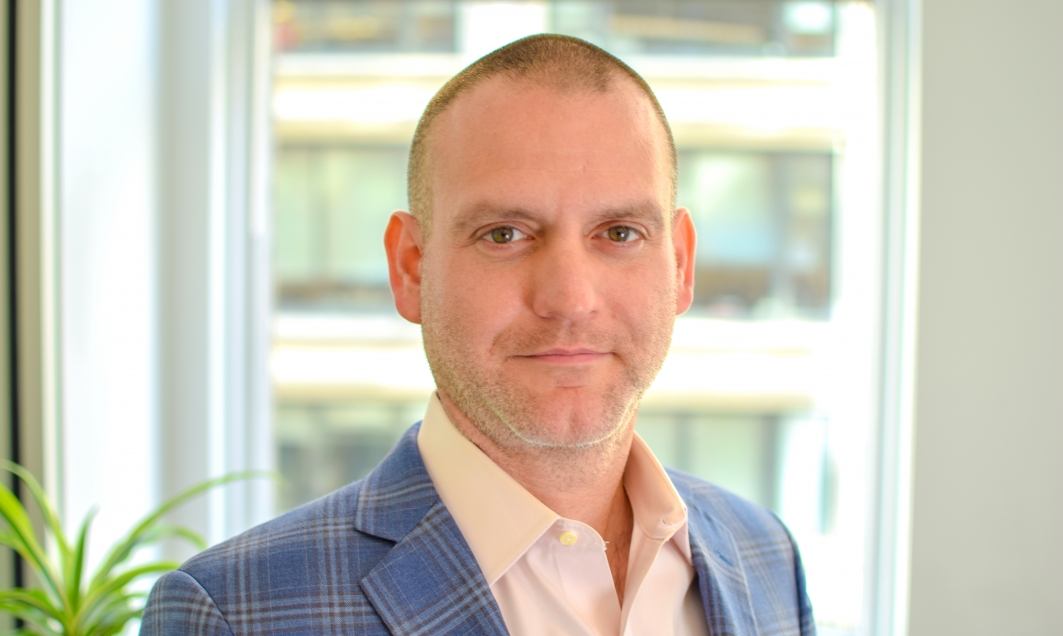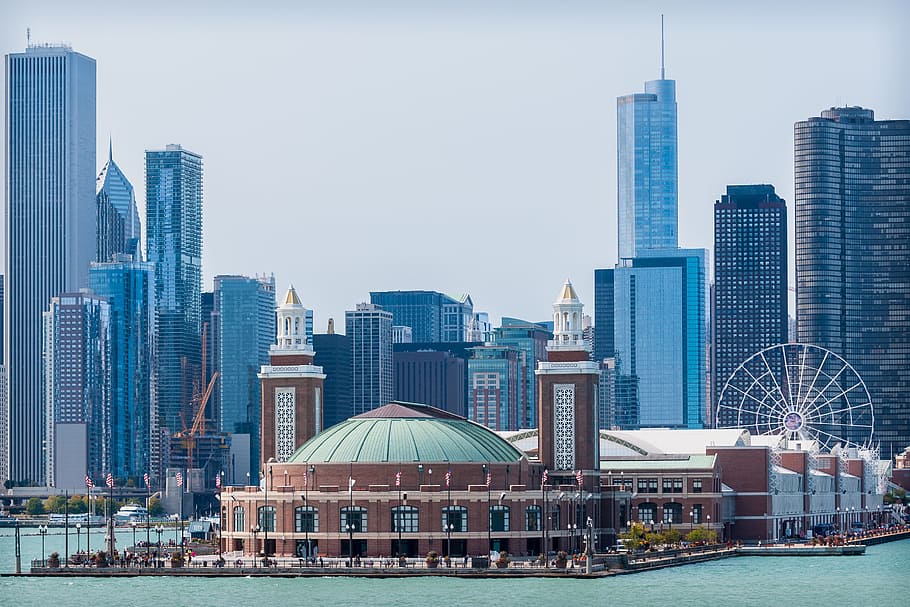U S-based PR agency 3Points Communications are specialists in fintech and Chicago tech. On a recent trip to the Windy City our Director Xanthe sat down with Founder and CEO Drew Mauck to discuss some of the big trends in international PR, Chicago’s ‘do-it-yourself attitude’ and, among other things, the best place to take a journo for lunch!

Q&A with Drew Mauck
Xanthe: Drew, first why don’t you sum up 3Points Communications for me in one sentence?
Drew: We increase visibility and credibility for companies in the financial technology and Chicago technology spaces
X: What makes you special?
D: I’ll stay on-brand and give you three points here: our size, our expertise, and adaptability. There are currently ten full-time 3Pointers, as well as two interns, and I think that is a great size that works well for a lot of clients. In terms of expertise, we have a strong expertise in financial technology (and a growing niche in general Chicago tech) — domain expertise is an important differentiator, especially for complex industries like fintech, because we can speak the same language as our clients. And adaptability, we completely customise each service package to a client’s needs, often changing the scope of our work in the middle of a contract based on the client’s evolving requirements.
X: What would you say are the biggest advantages of operating as a boutique agency?
D: For us, there are many advantages to being a boutique agency. There’s little bureaucracy or politics, or meetings for meetings’ sake. We have a tight-knit team where everyone is comfortable with everyone and where work gets done. That also helps with clients, who know exactly who they are working with when they partner with 3Points. I think our size allows us to stay nimble as well, and adapt on the fly to situations when needed. Finally, our size means that everyone has “agency at the agency” — each employee here has not only a window into how we run our company, but an important role in shaping the company as well.
PR trends
X: What are the main changes that you’ve seen in the PR industry since you set up shop?
D: The shrinking of trade media has meant that we’ve had to expand our services; it’s hard to rely solely on media relations. You have to be prepared to create your own content when you hit a wall with the media, so this leads to more focus on “owned” media. We’re now pursuing owned media simultaneously with earned media for almost all of our clients. Similarly, social media has grown dramatically since 3Points’ birth. Ten years ago, social media wasn’t really part of the equation in PR. Now it’s a vital part of any communications strategy — “like” it or not.
X: Are you working much with podcasts – either in terms of pitching to them or making them?
D: We do pitch a number of podcasts — that is certainly another type of media that has grown in the past decade. We haven’t created our own podcast yet for ourselves or clients, but it’s something we’ve discussed from time to time, and I can’t rule it out in the future. For anyone considering launching a podcast, you’ve got to really hone in on what will make yours stand out from a very crowded field.
X: What’s the state of print media where you are? Is it finding a niche? Do your clients want to be in print publications?
D: We’ve all heard the stories about the death of print media, and while I won’t deny that the past decade has been rough for the format, I’ve actually seen a small uptick in print media recently. Major corporations such as Airbnb are doing their own branded content in the form of print, with their own editorial teams and savvy contributing journalists. In general, our clients do still want to be in print publications, especially when those placements also appear online. Even if the format is less quantifiable in the digital age, there is still some cache that comes with being in print.
The tech scene in Chicago

Chicago is a startup hub.
X: What would you say makes Chicago special for tech companies?
D: There’s a saying I heard from Bain Capital Ventures that I really like: startups on the west coast brag about how much they’ve raised; startups here in Chicago brag about how little they’ve raised. We have a do-it-yourself attitude in Chicago, and there’s an appreciation and respect for investor money. I think that also lends credibility to our companies — if you’ve heard about a company here, there’s likely some substance to them.
X: Is it a big startup hub? Which sectors are growing fastest?
D: Yes, Chicago is a big startup hub. Our most acclaimed incubator is 1871 (named after the year of the Great Chicago Fire, from which the city was completely rebuilt) but that is just one of many that have sprung up in the past decade. We actually wrote a bit about Chicago’s growth as a tech city earlier this year, in relation to another industry we enjoy here: craft beer. In terms of industries, fintech has always been a big player here — Chicago has been and still is a major trading town. But one of our strengths as an ecosystem is diversity. We don’t over-rely on one particular industry, and I think that’s reflected in the companies we see here. For example, even though we have a fintech expertise, we’ve worked with other local clients in industries ranging from edtech to restaurant tech to cryptocurrency.
X: So, tell me, where is the best place for lunch with a journalist?
D: Chicago is a top-tier food city, but in my experience, my reporter contacts typically prefer to meet over coffee or drinks. For the former, I like to take reporters to the coffee bar at Chicago’s Union League Club. For drinks, I’d say Cindy’s Rooftop or Ceres Cafe (also a favourite of the trading community here). But when you go to Ceres you’ve got to be careful with your consumption — they are famous for making their drinks on the stronger side!
If you are in Chicago for recreation and looking for the perfect draw, take the Purple line to Evanston and try a pint or two at Sketchbook. I think you will be impressed by their creativity and precision.
International PR
X: In the UK there are a lot of US companies launching into Europe, but increasingly we’re seeing UK clients want to expand over there. If a UK company was to launch in Chicago, what words of advice would you offer?
D: Without trying to be too self-serving, it’s important to hire a firm that knows the region and has proven local connections. More tactically, your gameplan needs to be long term — we’re not attracted to bright, shiny new objects. Our BS detector is refined. So as excited as you are for the upside of your company or product, be ready to candidly discuss any risks as well. If you can have a real conversation instead of just a sales pitch, that will go a long way toward reaching the Chicago audience.
You can follow Drew on Twitter @DrewMauck and 3Points Communications @3PTsComm.
Share this:





